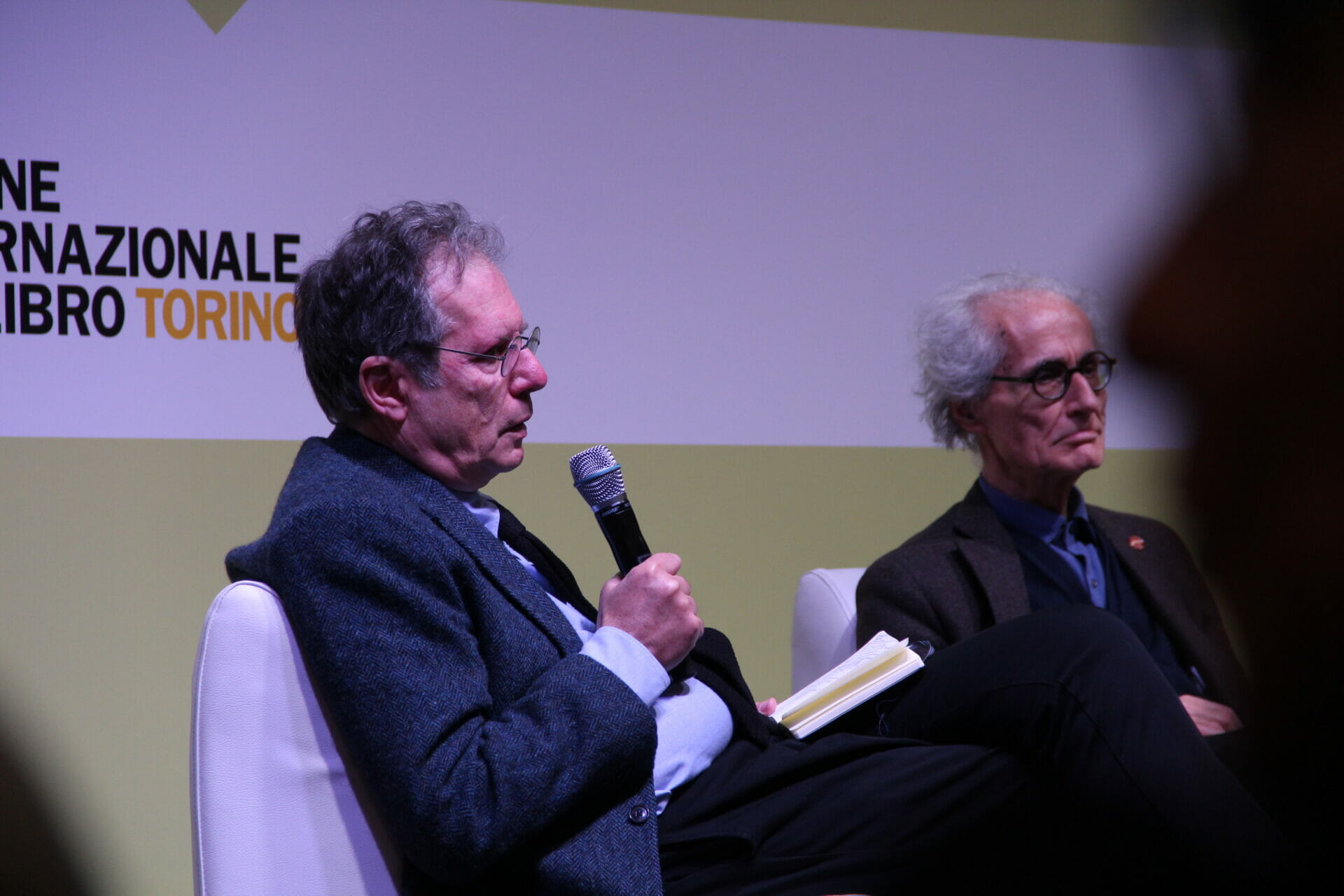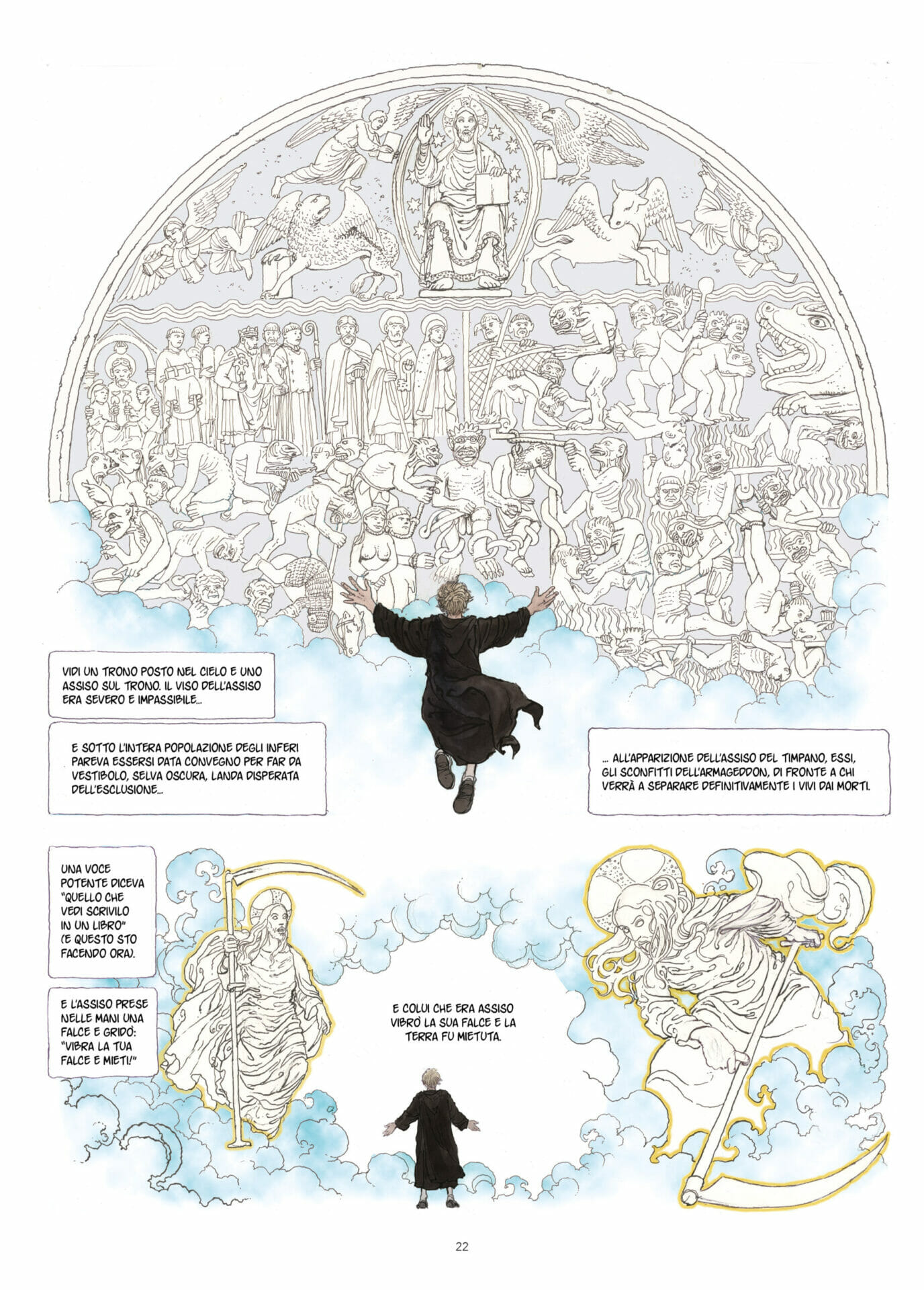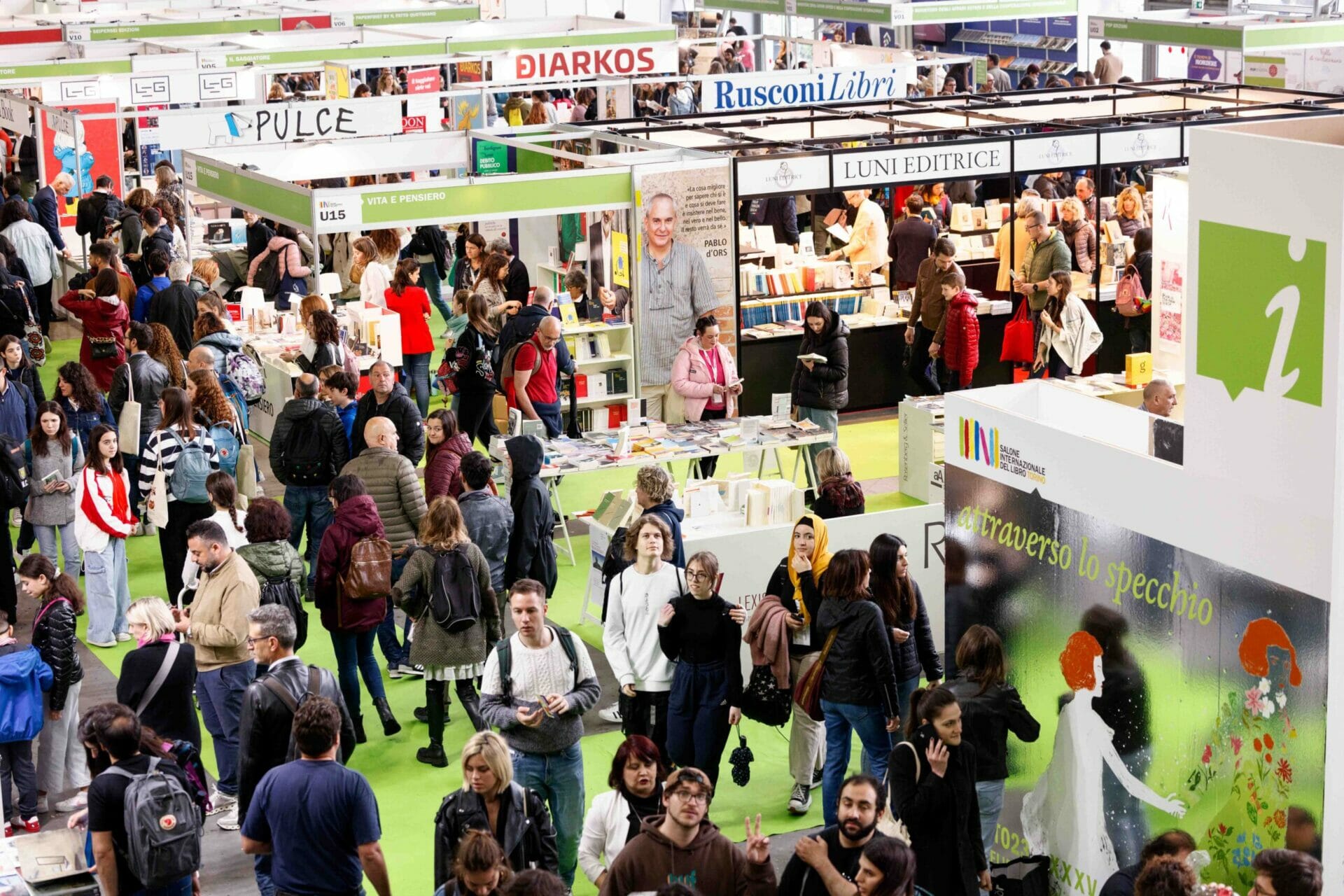
In his appearance titled Occident and future, a challenge of imagination at the 2023 International Turin Book Fair, Maurizio Ferraris, Professor of Theoretical Philosophy at the University of Turin, focused on the utopia of nomadic culture. He argued that the human of the next century will be a nomad of identity, taken from him by the protagonist of the radical technological revolution happening: the machine.
In his latest work Doc-humanity, Ferraris portrays human migration out of the homo faber, Man the Maker, era unleashed by the technological revolution. With the advent of the age of the machine, the concept of human has seen its foundations falter. Therefore, what has become fundamental, said Ferraris in his speech, supported by Luciano Canfora – professor of Greek and Latin philology at Bari’s University – is finding an answer to what appears to be the Great Utopia, the tremendous imaginative challenge of our century: how to transform the human from a producer of goods into a producer of value.
Utopia by Thomas More
The term utopia is a neologism coined in the homonymous work by the English Renaissance humanist, lawyer, social philosopher, author, and statesman Thomas More. The meaning of Utopia is placed, in both ambiguous and eloquent ways, at the crossroads of the Greek terms Εὐτοπεία (εὐ-, ‘good’, τóπος, ‘place’, -είᾱ, excellent place) and Οὐτοπεία (οὔ, ‘not’, and therefore no place), composing an expression that sounds something like “the excellent place in no place”.
Another way of approaching More’s formula is through a concrete understanding, expressing that somewhat Renaissance dream of a society without conflicts where culture regulates human life. There are two conditions for the concrete realization of this great dream: the extinction of the homo faber and the development of a cultural heritage that belongs to all of humanity.
The advent of the machine and homo faber‘s crisis
In his L’Évolution créatrice (1907), French philosopher Henri Bergson refers to the concept of homo faber, speaking of intelligence as the “faculty to create artificial objects, in particular tools for creating tools, and to vary their creation indefinitely”. “If so, perhaps we really have,” as Ferraris claims, ”reached the advent of a new humanity. “
Homo faber was a piece of human history that began the first time a man chipped flint to make a scraper and continued for millennia through the production of tools and then their transformation into tools for cultivation, culminating in the industrial age. But, as Ferraris himself explains, “In all these moments, the human was simply the prosthesis of the automaton since a man using a javelin, a man using a plough or a man working on an assembly line is substantially the appendix of the machine to which it is connected”. Since mankind will no longer be faber, the open question is about what it will evolve into. In the time of automation, the possibility that mankind passes from an appendix to a mere recipient becomes realistic. And it is there that the great utopia of a man who produces values creeps in.
The great utopia of Doc-humanity
“The greatest transformation of the present compared to the past derives from an apparently tiny circumstance: the recording has never cost so little, and it has never been so ubiquitous. We become what we have always been, that is, documentary men”. No longer being forced to present himself as an appendix of the machines, man can evolve into a human identity made up of desires, passions, forms of life, inevitable follies, and merits. And this identity can only be shaped through that culture that founds More’s ‘concrete’ utopia. For this reason, the way humans receive the accumulated cultural heritage becomes fundamental. The quest of the present becomes finding a way to combine these data in forms of aggregation that produce a return value to all of humanity.
What becomes necessary to transform mankind into a producer of value is not simply to build a storage of information accessible to the entire humanity – an infosphere, as Luciano Floridi, Professor of Philosophy and Ethics of Information at the Oxford Internet Institute of Oxford University – but to be able to collect the data, the record, in a network sailable towards a higher understanding of the self as individual and of the world as a collectivity. What’s necessary is a nomadic culture. Nòmad, from the Latin nomas -ădis means “he who grazes, who goes astray to change pastures“. Like this, the view of a nomadic culture becomes almost poetic. The wider the exploration of culture, the more value is produced.









